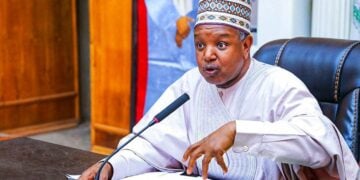Key oil and gas industry analysts and stakeholders have advised the new crop of professionals appointed to the board of the Nigerian National Petroleum Company Limited (NNPCL) to optimise oil-producing assets and refinery regeneration to grow the sector.
While expressing confidence in the new team, they stated that, with their wealth of experience in the industry, they should make effort to improve oil production through matured fields and rejuvenate idle assets to unlock Nigeria’s economic potential and drive sustainable growth.
According to them, optimising these assets will create value for all Nigerians and foster development across key economic sectors.
Reacting to the presidency’s announcement appointing Bayo Ojulari as the company’s new group chief executive officer (GCEO), the second vice president, Nigerian Gas Association (NGA), Chichi Emenike, said the NNPC must commit to transparency and accountability consistent with global best practices.
Emenike, who is also the vice president, Upstream for Women in Energy and Ag. MD & Asset manager for Neconde Energy Limited (OML 42) said they expect the new management to reconstruct various arrangements between the national oil company and private companies to provide an enabling and clement environment attractive to investors.
She said the NNPC holds significant and strategic equity in producing assets through different arrangements, such as Joint Venture operations, and efforts should be focused on encouraging private sector operators to fund most field developments.
Emenike, in particular, spoke about creating more opportunities in the midstream sector. She expressed worries that, despite the country’s huge gas reserves, much has not been adequately done to optimise gas production and fully contribute to economic development and growth.
She further noted that as a National Oil Company (NOC), the NNPCL should leverage the experiences of NOCs like its counterparts in other climes to propel exponential profitability.
She advised that the company must collaborate with stakeholders, particularly oil-producing communities, to preserve oil facilities and its joint venture partners, in order to increase production and profit.
On his part, the national president of the Petroleum Retailers Outlets Owners Association of Nigeria, Billy Gillis-Harry, said the NNPC should begin to extend partnerships with global entities to improve oil and gas operations.
Gillis-Harry noted that NNPC’s shift into a private company creates new potential for profitability and expansion, but the company must deal with the challenges of domestic refining, operational issues, and increased transparency.
According to him, by learning from the experiences of NOCs in other countries and committing to sustainability initiatives, the NNPCL can position itself for long-term success in Nigeria’s oil sector.
In his view, communication and engagement with stakeholders should be improved with regular meetings to provide critical feedback on operational issues and planning.
He also pointed to optimisation which, he believes, brings benefits ranging from increased availability and productivity to lower costs and compliance risks.
Two industry experts with vast knowledge of petroleum sector operations call for the full resuscitation of public refineries to create opportunities for wider supply chains, especially for white products, and to avoid monopoly in the system.
LEADERSHIP reports that President Bola Ahmed Tinubu, on Wednesday, approved the reconstitution of the NNPC Board, removing all other board members appointed with Akinyelure and Kyari in November 2023.
A statement issued on Wednesday by the special adviser to the president on information and strategy, Bayo Onanuga, explained that the new 11-man board has Bashir Bayo Ojulari as the Group CEO and Ahmadu Musa Kida as non-executive chairman.
Adedapo Segun, who replaced Umaru Isa Ajiya as the chief financial officer last November, has been appointed to the new board by President Tinubu.
Six board members, who are non-executive directors, represent the country’s geopolitical zones.
They are Bello Rabiu, North West; Yusuf Usman, North East, and Babs Omotowa, a former managing director of the Nigerian Liquefied Natural Gas (NLNG), North Central.
President Tinubu appointed Austin Avuru as a non-executive director from the South-South, David Ige as a non-executive director from the South West, and Henry Obih as a non-executive director from the South East.
Mrs Lydia Shehu Jafiya, permanent secretary of the Federal Ministry of Finance, will represent the ministry on the new board, while Aminu Said Ahmed will represent the Ministry of Petroleum Resources. All the appointments are effective from April 2, 2025.
President Tinubu, who invoked the powers granted under Section 59, subsection 2 of the Petroleum Industry Act, 2021 to effect the changes, emphasised that the board’s restructuring was crucial for enhancing operational efficiency, restoring investor confidence, boosting local content, driving economic growth, and advancing gas commercialisation and diversification.
President Tinubu also handed out an immediate action plan to the new board: to conduct a strategic portfolio review of NNPC-operated and Joint Venture assets to ensure alignment with value maximisation objectives.





